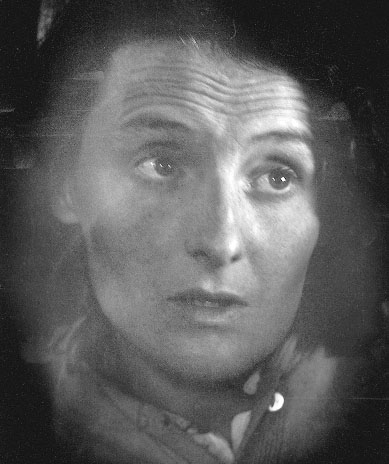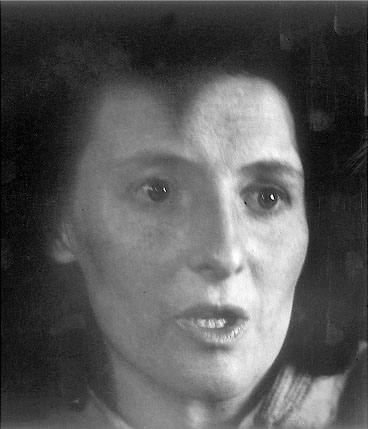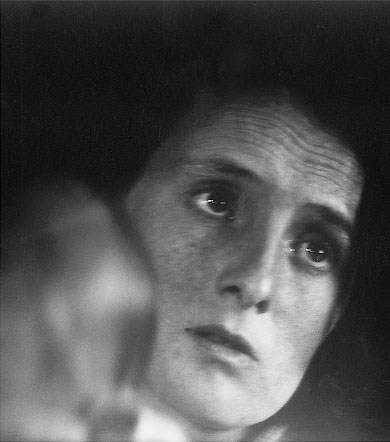A Fortunate Man (12 page)
Authors: John Berger

They have no need for it because their own opportunities seem to stretch further than they can imagine. Their own time is endless. They are constantly experiencing a sense of loss: it is the prerequisite, as Sartre points out, of a sense of adventure. Every parting, however trivial, the end of any game or event, represents a final loss which no repetition will mend. Sometimes they need to protest: then they cry out in the hope that the loss can be postponed, or
in true regret for what has gone. I say
true
regret because it is the thing lost which remains the centre of their attention: not, as frequently with adults, their own imagined state of deprivation in the future. Their sense of loss is bounded by the next event or interest. Young children have an almost insatiable appetite for âthe next thing'. The next is needed to take the place of what has irrevocably gone.
There is another reason why young children recover from total loss so quickly. Nothing fortuitous happens in a child's world. There are no accidents. Everything is connected with everything else and everything can be explained by everything else.
6
(The structure of their world is similar to that of magic.) Thus for a young child a loss is never meaningless, absurd â and, above all, unnecessary. For a young child everything that happens is a necessity.
When we suffer anguish we return to early childhood because that is the period in which we first learnt to suffer the experience of total loss. It was more than that. It was the period in which we suffered more total losses than in all the rest of our life put together. Even supposing that no neurotic pattern still forces us to react as we once reacted on some forgotten but terrible occasion as a child, we are bound to refer ourselves back to that period, for in the intervening years we have only rarely and perhaps never grasped, as we had to grasp continually as children, the iron irreversibility of events.
And yet we are not children even when we suffer again in this way. Above all, we can be aware, as children cannot, of the arbitrariness of our condition. What Sartre calls its gratuitousness.
I mean that, by definition, existence is not necessity. To exist is simply
to be there
; what exists appears, lets itself be
encountered
, but you
can never
deduce
it. There are people, I believe, who have understood that. Only they have tried to overcome this contingency by inventing a necessary, casual being. But no necessary being can explain existence: contingency is not an illusion, an appearance which can be dissipated; it is absolute, and consequently perfect gratuitousness. Everything is gratuitous, that park, this town, and myself. When you realize that, it turns your stomach over and everything starts floating about, as it did the other evening at the Rendez-vous Des Cheminots; that is the Nauseaâ¦
A depressed or bereaved forester obviously does not think like a professional philosopher. But he can see the forest, or the gas-stove in the downstairs room, or the newspapers piled under the dresser in the same light as Sartre describes here. It is almost a question of the light â or rather of how the mind interprets the light. It is a light which objectifies everything and confirms nothing. No child ever sees such a light. It is as different from the light in which a child sees the forest or the kitchen as is darkness.
I wonder whether I begin to make myself clear. Anguish arises from a sense of irreparable loss. (The loss may be real or imaginary.) This loss is added to all the other losses sustained during one's life: these other losses represent the
absence
of what one might otherwise have turned to for consolation on the occasion of this one, the most recent and final of all. Most of these other losses were suffered in childhood â for that is the nature of childhood. Thus the experience of loss tends to return, redeliver one to one's childhood. If the experience is partly or wholly neurotic, the return to childhood is actually part of the experience. If the experience is not neurotic, it is the sense of helplessness which leads one back. This helplessness â equally present in neurotic cases â changes one's sense of time. It is a helplessness in face of the real or imagined irreversibility of
what has happened. Such awareness of irreversibility slows down time. Moments can âseem like years' because, like a child, one feels that everything has changed for ever. The notion of repetition is suddenly removed from the reality of time. In the case of young children this can amount to a form of heightened awareness and is indeed the secret of much of their sense of adventure. But this is because they are able to explain and justify â at least on one level â everything that happens, every loss included. By contrast the anguished adult suffers the conviction that what has happened is absurd; or at the best, is without sufficient meaning. That is to say the meaning which remains cannot possibly balance what has been lost. Consequently the man or woman in anguish is trapped in the time-scale of childhood without a child's protection, suffering a uniquely adult agony.
Sassall meets anguished patients on his rounds â the close relatives of the dying, those who are ill and want to die, the immobilized who are made desperate by a kind of claustrophobic fear of their own bodies, the insanely jealous, the lonely who try to kill themselves, the hysterics; sometimes he is able to reach them: sometimes it is obvious that he never will. In the evenings after supper he has long appointments lasting an hour with patients whom he believes he can help through psychotherapy. They suffer their crises with him and these crises too can mount to the pitch of anguish.
The psychologist G. M. Carstairs, writing from the comparatively detached point of view of a teaching professor, in no way underestimates the stress of such encounters.
To encounter a fellow human being in a state of despair compels one to share, at least in imagination, his elemental problems: Is there any meaning in life? Is there any point in his staying alive?

I believe, however, that the questions tend to present themselves to Sassall in terms of the experience of time. The elemental problem becomes: What is the value of the moment?
It is as though time became the equivalent of Conrad's sea: the sickness the equivalent of the weather. It is time which can promise âthe peace of God' and which can lash and destroy with âunimaginable' fury. Again I am forced to use what may be a clumsy metaphor in the attempt to define a hidden, subjective experience â the generalized impact on a doctor's imagination of the suffering which he meets almost daily and which cannot be settled by writing prescriptions.
Sassall attends all the midwifery cases in his practice â is present at almost every birth. He is also present at most deaths. He is continually being reminded of how much difference a moment can make and of how irreversible, how carefully prepared the
process which leads up to that moment is. To some degree he can interfere with the process. He can speed it up, he can slow it down, he can âplay for time'. But he cannot turn the sea into dry land.
Patients, when their illness has been given a name, usually ask next: And how long will it take? How long will it be before � How long? How long? And the doctor replies that he cannot promise but ⦠He can appear to be the controller of time, as, on occasions, the mariner appears to rule the sea. But both doctor and mariner know this to be an illusion.
All doctors are more than usually aware of death â though some do their best to hide the metaphysical fact by thinking only in terms of the physiological stages of dying. In the human imagination death and the passing of time are indissolubly linked: each moment that passes brings us nearer to our death: and our death, if it can be measured at all, is measured by that apparent eternity of existence which must continue after and without us.
This may help to explain Sassall's preoccupation with time. What is the value of the moment
sub specie aeternitatis
? But the confrontation with anguish is even more important. The anguished are trapped in a moment which is born of all that has happened to them. Faced with the rigid irreversibility of events â so terrible for all who are unprepared, and none can be fully prepared â it is their experience which bends in a circle: unable to catch time by the tail, they chase their own, revolving in one moment blindly through all their life. How much then can a moment contain?




And how can one moment be compared to another person's experience of the same moment? Often it seems almost incredible that Sassall putting out a hand to touch a patient finds the patient there, coexisting.
The objective co-ordinates of time and space, which are necessary to fix a presence, are relatively stable. But the subjective experience of time is liable to be so grossly distorted â above all by suffering â that it becomes, both to the sufferer and to any person partially identifying himself with the sufferer, extremely difficult to correlate with time proper.
Sassall not only has to make this correlation, he also has to correlate the patient's subjective experience of time with his own subjective experience. When he has left the patient and is turning the Land Rover round, preparing to drive off, he may suddenly glimpse out of the corner of his mind's eye the comparative emptiness of that present moment for him, and this emptiness can terrify.
